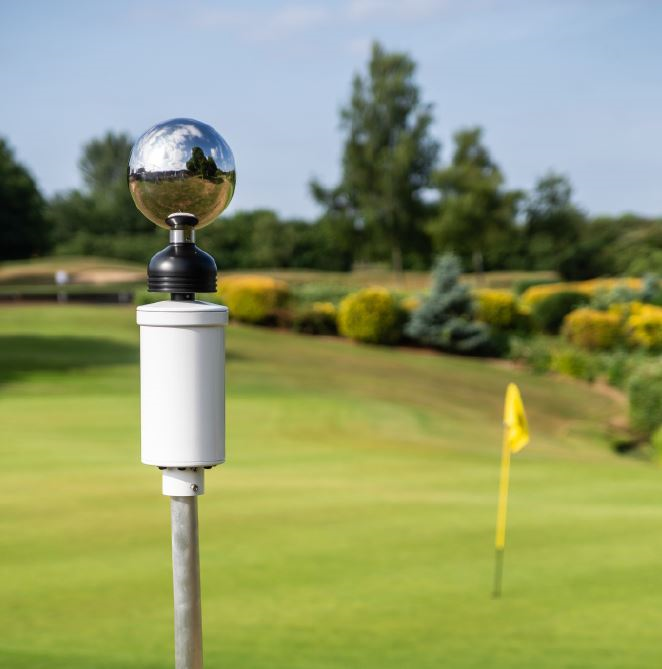Lightning warning system on display at Golf Industry Show
UK meteorological equipment specialist Biral is attending the Golf Industry Show in San Diego this month to exhibit its new BTD-200 self-contained, standalone lightning warning system.
The BTD-200 lightning warning system gives advanced warning of overhead lightning risk using its professional-grade detection system which is designed for leisure, sports and outdoor pursuits. This includes golf courses, team sports, university and school sports facilities, sports stadiums, outdoor leisure, theme parks and concert venues.
The BTD-200 lightning warning system is a complete detection and warning system which has been developed from the Biral range of professional aviation grade lightning detection systems. It reliably detects the local presence of all forms of lightning out to a range of 35km (22 miles) from the sensor. Designed to be installed and set up by non-technical staff, it comes with a power supply and the essential PC application ‘Lightning Works’, for monitoring and warning personnel of approaching thunderstorms.
The BTD-200 makes quasi-electrostatic measurements to avoid the problems of false alarms and mechanical failures associated with the detection of lightning using radio wave and field-mill based sensors. Most importantly, it is able to issue overhead lightning warnings prior to the first discharge of lightning which radio wave based systems cannot. Virtually all commercially available lightning detection systems use the reception of radio waves generated by lightning discharges as the primary detection technique.
Whilst providing a sensitive method of detection there are many other sources of these radio waves such as arcs from electrical equipment, vehicle ignition systems and fixed or mobile transmitters. All of which can result in high false alarm rates for these systems. Due to these limitations, most standalone lightning detectors employ secondary measurements such as optical flash detection in an attempt to reduce false alarms and employ complex signal analysis to estimate range. These techniques are only partially effective, giving these older technology lightning detectors a poor reputation due to their high false alarm rate, poor distance accuracy and short working lifetimes.

In many applications, the lightning warning system is used to help protect people and equipment from the dangers of a lightning strike by providing advanced warning of a storm’s approach. This is all the more important in areas where large numbers of people are outside across a wide area (e.g. a golf course). Detectors which rely on lightning detection alone are only effective if the storm is already producing lightning at some distance before moving closer towards the detector. If the first lightning strike of the storm is overhead, then these types of systems give no advanced warning and therefore no protection.
The advanced detection principle of the BTD-200 enables it to monitor the strength of the local electric field and the presence of charged precipitation, both of which are strong indicators of lightning risk. This allows the BTD-200 to provide warnings of the risk of an overhead strike even before any lightning has been produced. This advanced warning can be up to 20 minutes before the lightning begins, giving more than enough time to alert the public to the risks of remaining outdoors.
The BTD-200 lightning warning system is a modular system which is designed to operate out-of-the-box, but is also expandable as requirements grow or change. The essential system comprises a lightning detector which is placed outside, either on its tripod mount or permanently installed, whilst a PC located indoors runs the supplied Lightning Works software. The system includes a power supply and (optionally) the cabling to connect to the power and the host PC.
Further information is available from Biral on +44 1275 847787, email: enquiries@biral.com or by visiting www.biral.com















Let me tell You a sad story ! There are no comments yet, but You can be first one to comment this article.
Write a comment